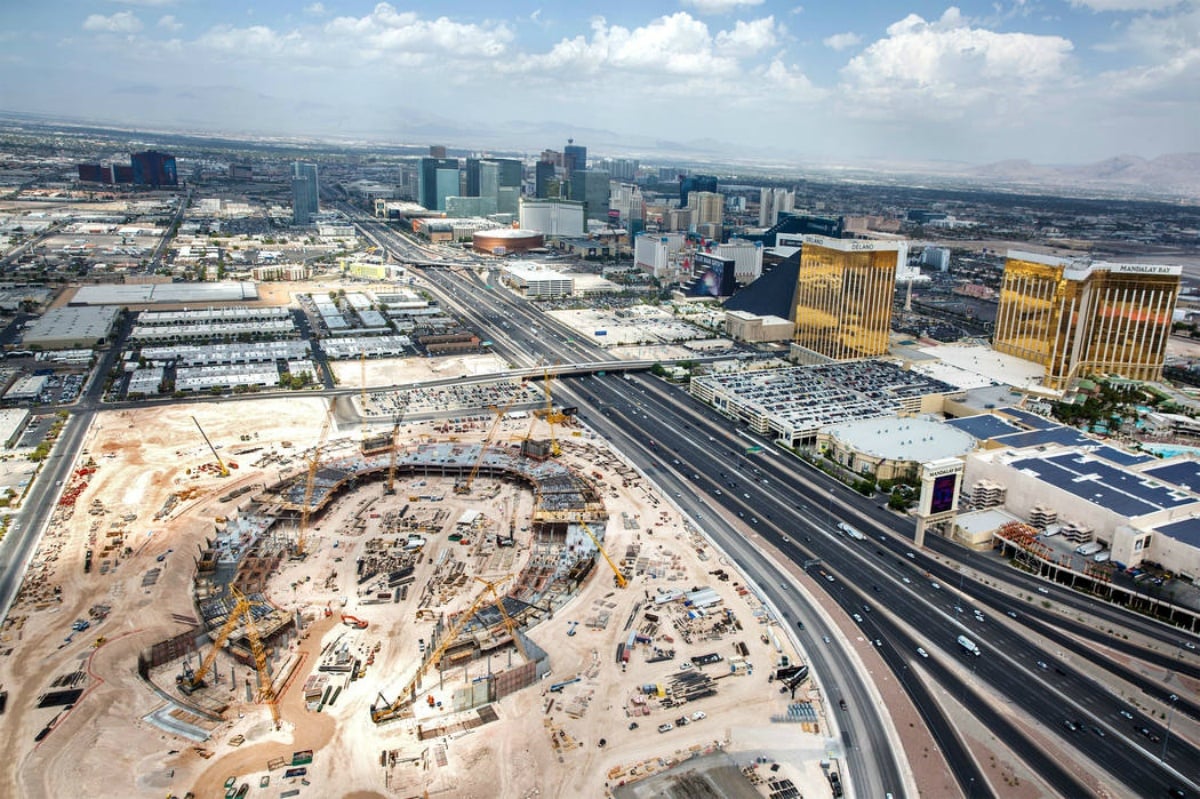Las Vegas Raiders Stadium Designed With Super Bowl in Mind, Officials Optimistic Venue Can Host Big Game
Posted on: September 14, 2018, 07:30h.
Last updated on: September 14, 2018, 07:22h.
The Las Vegas Raiders are scheduled to begin playing in Sin City at the start of the 2020 NFL season. Soon after they do, the odds are growing strong that the $1.8 billion stadium will be designated as a future home of the Super Bowl.

The Southern Nevada Sporting Event Committee (SNSEC), which was formed in May through an executive order by Governor Brian Sandoval (R), met this week to discuss potential future events in the Las Vegas Valley. The 65,000-seat domed facility being built just west of I-15 between Hacienda Avenue and Russell Road took center stage, and specifically its chances of bringing America’s most prominent sporting spectacular to the region.
The 19-member committee listened to input from various experts, and the consensus opinion seemed to support the notion that the Raiders stadium will be a highly qualified candidate for the big game.
Las Vegas, the convention and exhibition capital of the US, has plenty of experience hosting large-scale events. It of course also offers an endless amount of entertainment. NFL spokesman Brian McCarthy told SNSEC that all gives Las Vegas an upper hand in landing a future Super Bowl.
The earliest the stadium could host the Super Bowl would be in 2025. Reports have circulated that the NFL is considering moving to a four-city host rotation, and Las Vegas is in the running.
Super Stadium
The NFL has a series of qualifying criteria potential Super Bowl host cities must meet.
They include a stadium capable of seating 70,000 people, as well as a climate-controlled venue if average temperatures fall below 50 degrees. SNSEC members say the stadium will be capable of expanding to 70,000 seats.
The facility must offer modern amenities, and be located in a region where the number of available hotel rooms within an hour’s drive is a minimum of 35 percent of the stadium capacity. The Las Vegas Convention and Visitors Authority reports there are nearly 149,000 available hotel rooms.
The bidder must additionally make the stadium available to the NFL free of charge, and provide the league control of the grounds for 54 days (30 days leading up to the Super Bowl, and 24 days following).
SNSEC will have plenty of qualities to tout to the NFL should it bid on a Super Bowl. Another asset is McCarran International, the nation’s eighth busiest airport, which is located less than two miles from the football field.
Worthy Investment?
Unlike the Olympics, hosting the Super Bowl remains a prosperous opportunity for many cities. That doesn’t, however, mean it’s in Las Vegas’ best interest.
The Las Vegas stadium wouldn’t collect a dime from the game’s ticket sales, merchandising, food and beverage, parking, or licensing. The area government would additionally need to fund a Super Bowl operating budget ranging anywhere from $12 million to $50 million, figures that are based on recent Super Bowl hosts. Las Vegas would also be on the hook for all state and county taxes incurred by the NFL.
So how in the world does it make sense? Cities that have recently welcomed the Super Bowl have said the influx of visitors more than makes up for the costs. Minneapolis, host of the last Super Bowl, said it profited $300 million.
Of course, February in Minneapolis isn’t exactly the same draw as February in Las Vegas, the latter a town that rarely has trouble keeping its hotel rooms occupied.
No comments yet